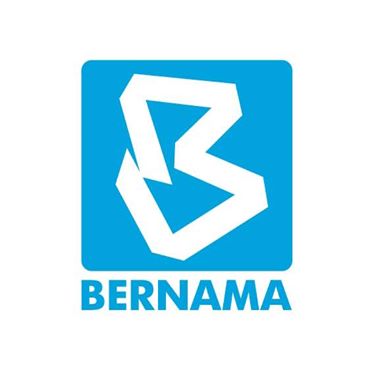Petros and Petronas: Bridging the divide for Malaysia’s oil and gas future
1 day ago
Malaysia’s energy sector, a cornerstone of its economic stability, is embroiled in a critical conflict.
At the heart of this challenge lies the debate between Petronas, the nation’s oil and gas powerhouse, and Petros, Sarawak’s state-owned energy entity, over the latter’s push to be the sole gas aggregator in the state.
This issue is more than a dispute over control – it is a test of the country’s ability to balance state autonomy with national cohesion. Sarawak Premier, Tan Sri Abang Johari Openg stands at the centre of this high-stakes negotiation. With Sarawak demanding greater resource sovereignty and Petronas protecting its federal mandate, Abang Johari’s role as a mediator is pivotal. His ability to align these two entities could determine the trajectory of Malaysia’s oil and gas sector for decades to come.
Sarawak’s assertive stance on resource control
The Sarawak government’s demand for Petros to be recognised as the sole gas aggregator stems from historical and economic grievances. Leaders in Sarawak, including members of the state assembly, argue that their rights to manage the state’s oil and gas resources were guaranteed under the Malaysia Agreement 1963 (MA63).
They also cite the Oil Mining Ordinance (OMO) as the legal foundation for their claim, asserting that Sarawak should benefit directly from its wealth of natural resources.
For Sarawak, placing Petros at the helm of resource management represents more than just economic empowerment. It is a bid for self-determination, an opportunity to funnel energy revenues directly into the state’s infrastructure, education, and healthcare systems.
Abang Johari has championed this vision, emphasising that Sarawak’s wealth should primarily benefit its people while contributing to national growth. State ministers and members of the state assembly have echoed this sentiment, demanding that Petronas respect Sarawak’s decision. In recent state assembly debates, lawmakers have called for clarity and action, urging Petronas to collaborate with Petros in a manner that reflects mutual respect and shared goals.
Petronas: Balancing national integrity with regional demands
Petronas, established under the Petroleum Development Act (PDA) of 1974, has long been the custodian of Malaysia’s petroleum resources. Its centralised approach has enabled Malaysia to project itself as a unified player on the global stage, securing international investments and fostering partnerships.
However, the demand for Petros to become the sole gas aggregator in Sarawak challenges this structure. While Petronas acknowledges Sarawak’s aspirations, it must also safeguard its role as a national steward.
Fragmenting resource management could introduce operational inefficiencies, weaken investor confidence, and jeopardise Malaysia’s competitive edge in the global energy market.
Petronas must navigate these complexities with tact. A confrontational stance risks alienating Sarawak and igniting a precedent that other resource-rich states might follow. Conversely, an overly accommodating position could undermine its federal mandate, complicating its ability to operate cohesively.
Abang Johari: The mediator Malaysia needs
Abang Johari’s leadership is critical in steering the negotiations between Petros and Petronas toward a resolution that benefits both parties. As an advocate for Sarawak’s autonomy, he has been vocal about the state’s right to control its resources.
Yet, he also recognises the importance of maintaining a strong partnership with Petronas to ensure Malaysia’s energy sector remains robust.
Abang Johari’s approach to this dispute must focus on fostering collaboration rather than conflict. By positioning himself as a mediator, he can bridge the gap between Petros’ aspirations and Petronas’ national responsibilities.
His challenge, however, lies in crafting a framework where both entities can co-exist and thrive – one that respects Sarawak’s autonomy without undermining Petronas’ strategic role.
Lessons from North America’s energy giants
The dispute between Petros and Petronas is not unique. Around the world, energy companies have grappled with balancing regional autonomy and national interests. North America’s “Big Six” oil and gas companies – ExxonMobil, Chevron, ConocoPhillips, Valero, Marathon, and Phillips 66 – offer valuable lessons.
In the United States, regional players operate autonomously while collaborating with national and international partners on strategic initiatives. These partnerships leverage regional expertise while maintaining global competitiveness, creating a resilient and diversified energy sector.
Petros and Petronas must adopt a similar mindset. Petros could lead resource management in Sarawak, focusing on local development and state-level priorities, while Petronas could bring its global expertise, technological innovations, and access to international markets.
This collaborative model would strengthen Malaysia’s overall energy strategy, ensuring shared prosperity without undermining either entity.
Towards a shared vision
The ongoing tensions between Petros and Petronas is a litmus test for Malaysia’s ability to innovate its resource governance model. The solution lies in a collaborative framework that respects Sarawak’s legitimate aspirations while preserving Malaysia’s national coherence.
Petros must recognise the value Petronas brings as a global player with decades of expertise. Likewise, Petronas must respect Sarawak’s desire for autonomy and work with Petros as a partner rather than an adversary.
Both entities share a common goal: to ensure Malaysia’s oil and gas industry thrives, amid rising global competition, and the transition to renewable energy.
The Petros-Petronas issue is a defining moment for Malaysia’s energy sector. The ability to balance state autonomy with national interests will determine whether Malaysia emerges stronger or fragmented.
Abang Johari’s role as mediator is pivotal. His leadership can guide Petros and Petronas toward a resolution that not only benefits Sarawak but also strengthens Malaysia as a whole.
In the end, both Petros and Petronas must remember that they are part of the same national fabric. Their shared success will ultimately shape Malaysia’s energy future, ensuring prosperity for generations to come.
If they rise to the occasion, Malaysia can set a global example of how to manage resource disputes with professionalism, respect, and a shared vision for progress.
The views expressed here are the personal opinion of the writer’s and do not necessarily represent that of Twentytwo13.
...Read the fullstory
It's better on the More. News app
✅ It’s fast
✅ It’s easy to use
✅ It’s free









